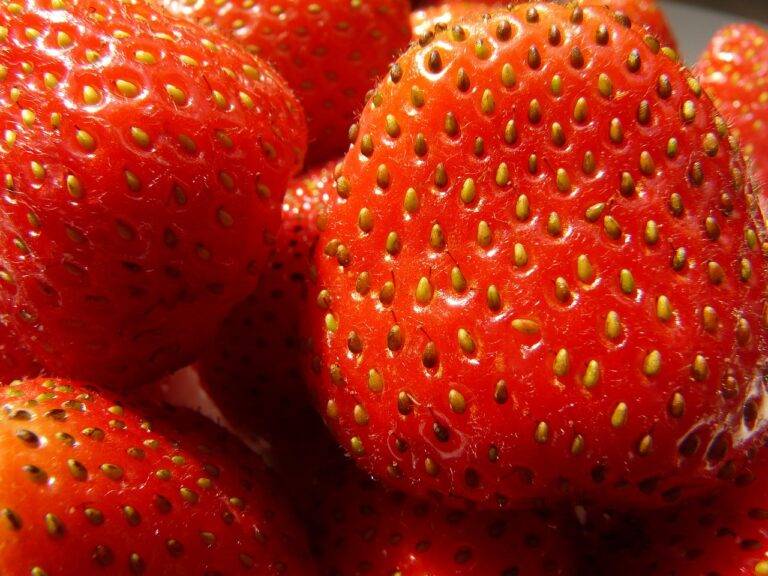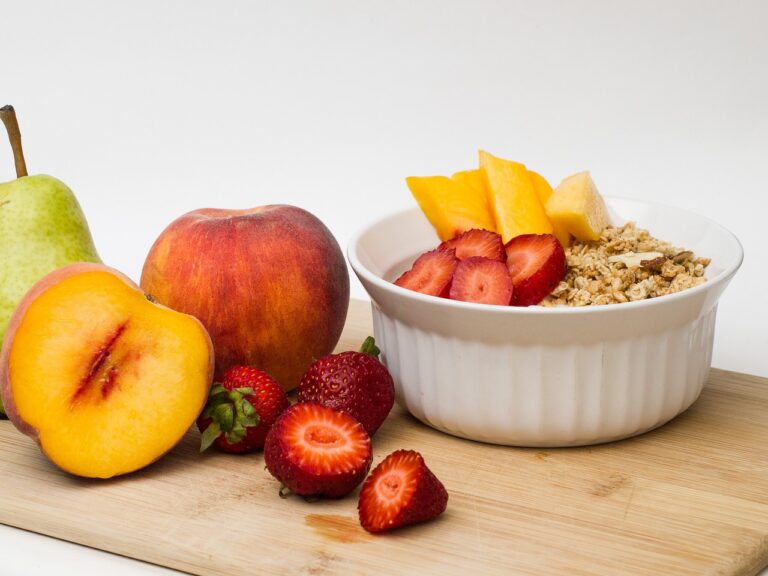The Benefits of Honey for Antioxidant Support: Allpaanel, Laser247 com app login, Yolo 247 com login
allpaanel, laser247 com app login, yolo 247 com login: Honey has long been hailed for its delicious taste and natural sweetness, but did you know that it also offers incredible benefits for antioxidant support? This golden liquid is not just a sweet treat, but also packs a powerful punch when it comes to fighting free radicals and promoting overall health and well-being.
So, what exactly are antioxidants, and why are they so important? Antioxidants are compounds that help protect our cells from damage caused by free radicals, which are unstable molecules that can lead to oxidative stress and contribute to a host of health issues. By neutralizing these harmful molecules, antioxidants play a crucial role in reducing inflammation, boosting immune function, and preventing chronic diseases such as cancer, heart disease, and diabetes.
One of the key benefits of honey is its high antioxidant content. Raw honey, in particular, is packed with a variety of antioxidants, including flavonoids, phenolic acids, and enzymes. These antioxidants work together to combat oxidative stress and protect our cells from damage, promoting overall health and longevity.
In addition to its antioxidant properties, honey also offers a range of other health benefits. From soothing sore throats and coughs to promoting digestive health and boosting energy levels, this natural sweetener has been used for centuries as a therapeutic remedy for a variety of ailments.
Here are some of the key benefits of honey for antioxidant support:
1. Flavonoids: Flavonoids are a group of antioxidants found in honey that have been shown to have powerful anti-inflammatory and immune-boosting properties. By consuming honey regularly, you can help reduce inflammation in the body and strengthen your immune system to ward off infections and illnesses.
2. Phenolic acids: Phenolic acids are another group of antioxidants in honey that help protect our cells from oxidative damage. These compounds have been linked to a reduced risk of chronic diseases such as cancer and heart disease, making honey a valuable addition to a healthy diet.
3. Enzymes: Honey contains a variety of enzymes that help break down nutrients and promote digestion. These enzymes also play a role in enhancing the antioxidant activity of honey, making it even more effective at combatting free radicals and supporting overall health.
4. Vitamin C: Some types of honey, such as acacia honey, contain high levels of vitamin C, a powerful antioxidant that helps boost the immune system and promote healthy skin and hair. By including honey in your daily diet, you can ensure you’re getting a good dose of this essential nutrient.
5. Wound healing: Honey has been used for centuries as a natural remedy for wounds and burns due to its antibacterial and anti-inflammatory properties. When applied topically, honey can help promote healing and reduce the risk of infection, making it a valuable addition to your first aid kit.
6. Brain health: Some studies have suggested that honey may have neuroprotective effects and could help improve cognitive function. The antioxidants in honey help protect brain cells from damage and promote healthy brain aging, making it a potentially valuable food for maintaining mental sharpness as we age.
In conclusion, honey is not just a delicious sweetener, but also a powerhouse of antioxidants that can boost your overall health and well-being. By incorporating honey into your daily diet, you can reap the benefits of its antioxidant properties and protect your cells from damage caused by free radicals. So next time you reach for a sweet treat, consider reaching for a jar of honey and enjoy the countless benefits it has to offer.
FAQs:
Q: Can honey help with allergies?
A: Some people believe that consuming local honey can help reduce allergy symptoms due to its potential immune-boosting properties. While more research is needed to confirm this effect, some individuals may find relief from seasonal allergies by incorporating honey into their diet.
Q: Is raw honey better than processed honey?
A: Raw honey is believed to retain more of its beneficial antioxidants and enzymes compared to processed honey, which is often heated and filtered. If possible, opt for raw honey to maximize its health benefits.
Q: How much honey should I consume to reap its antioxidant benefits?
A: While there is no set amount of honey you should consume, incorporating a tablespoon or two into your daily diet can provide you with a good dose of antioxidants. Just be mindful of its calorie content and enjoy in moderation.
Q: Can I use honey as a natural sweetener in recipes?
A: Yes, honey can be used as a natural alternative to sugar in a variety of recipes, such as baked goods, salad dressings, and marinades. Its unique flavor profile adds a touch of sweetness while providing health benefits.
Q: Are there any risks associated with consuming honey?
A: While honey is generally safe for most people to consume, infants under the age of one should not be given honey due to the risk of botulism. Individuals with allergies to bee pollen or certain types of honey should also exercise caution when consuming honey.







